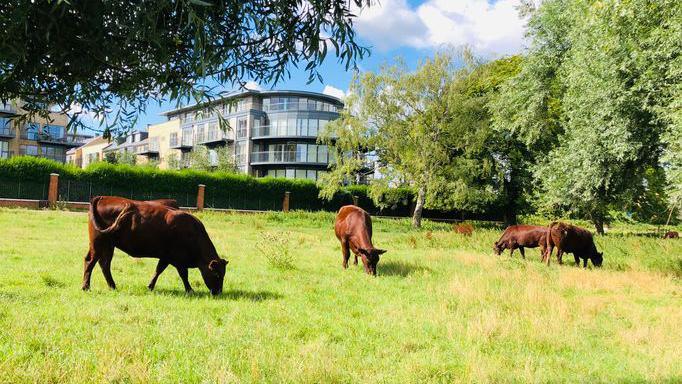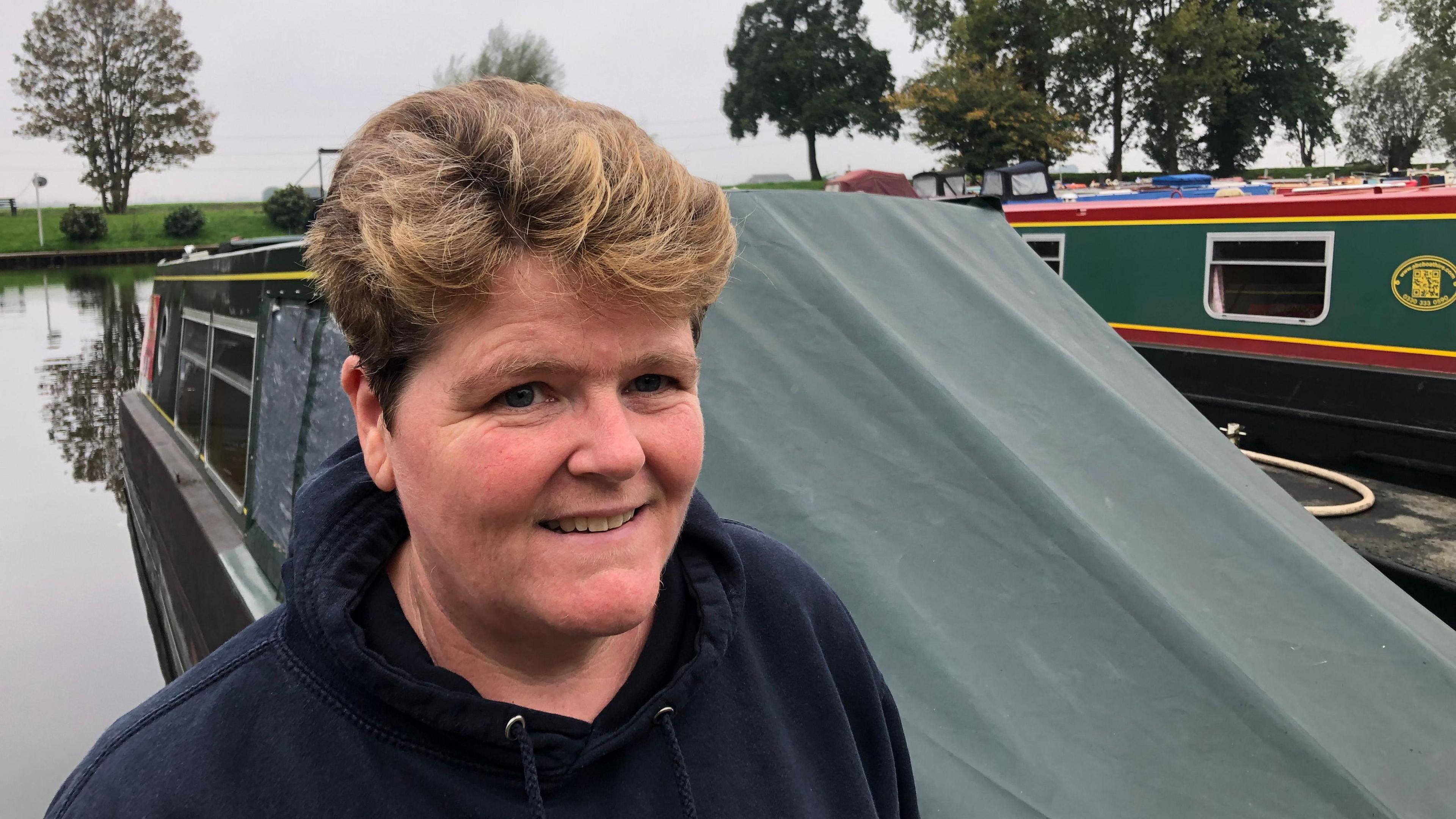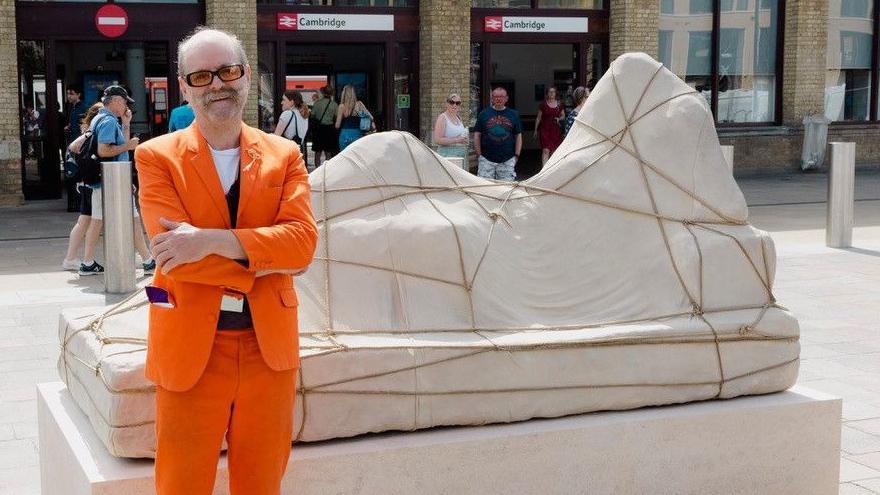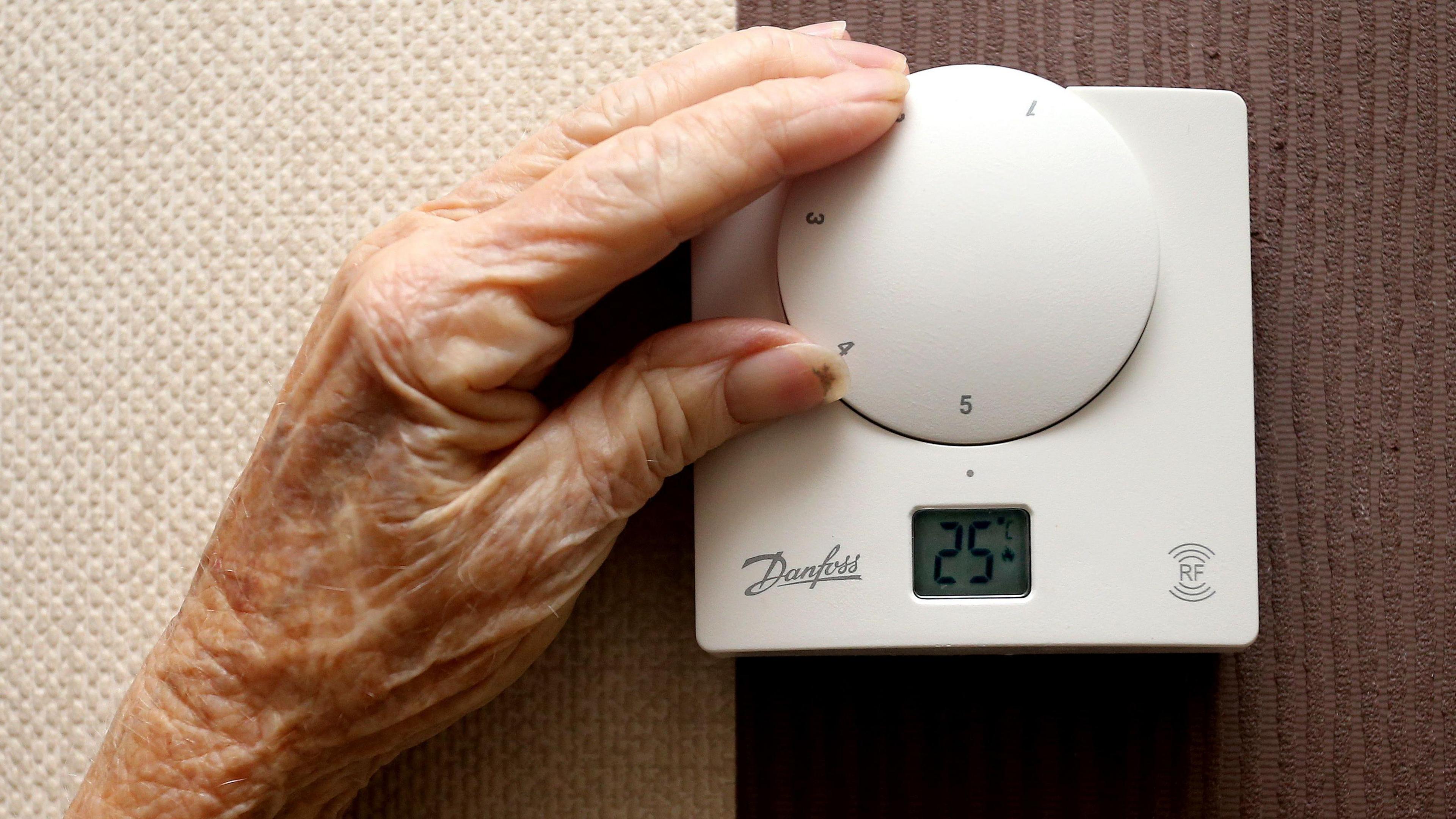Less mowing to help wildlife an option in city cuts

The council said passing responsibility for out of hours grazing management to cattle owners could reduce its own costs
- Published
Cutting back on mowing and leaf collection in a city’s green spaces could boost wildlife habitats while reducing costs, a council has said.
Cambridge City Council has laid out options to help it reach its target of spending £3.5 million less on its services by 1st April 2026.
They include the reduction in mowing; giving up the management of community centres and reducing the number of public toilets. The options are explained in a public questionnaire, which is open until 4th December.
The authority said work was already underway to save a further £2.5 million in the same period through changes to its organisational structure.
Respondents will be asked whether they support or oppose each measure.
The council said it had committed to reducing net annual expenditure by £6 million over the next year and a half to close a projected gap in its budget, but that making changes to services was a "last resort".
It said it could "prioritise some of the city’s green spaces to support biodiversity by reducing the frequency of mowing and leaf collection in some areas, having a positive impact on the environment".
The council’s questionnaire would also ask respondents if it should transfer responsibility for its out-of-hours pinder service on to graziers whose cattle graze on the city’s commons.
'Some or all' community centres could be sold
Separately, it said it could reduce its £1.4million annual spend on community centres by transferring “some or all” into community ownership.
Other options to save money included the number of public toilets it managed, the cost of public CCTV and its free pest control service.
The council said it currently subsidises the use of its swimming pools but could instead pass on the costs of maintaining and running these onto users.
Charging non-Cambridge residents a higher price to use them could, meanwhile, "provide an additional £80,000 per year".
Other money-saving measures suggested in the questionnaire include:
Reducing arts and cultural development
Reducing equalities and cohesion work
Reducing spend on programmes that promote an active and healthy lifestyle
Redeveloping or selling commercial properties
Introducing overnight car parking fees
Increasing charges for people using sports and recreation facilities
Allowing people to make additional voluntary council tax contributions.
Cambridge City Council said a draft of its 2025/26 budget will be presented to councillors early next year before a final decision is made on 24th February.
It said its current assumption is that council tax will rise by 2.99 per cent next year, but it is consulting on this as well.
Councillors will be asked to approve use of the questionnaire before it is open to respondents.
Get in touch
Do you have a story suggestion for Norfolk?
Follow Cambridgeshire news on BBC Sounds, Facebook, external, Instagram, external and X, external.
- Published22 October 2024

- Published21 October 2024

- Published22 October 2024
